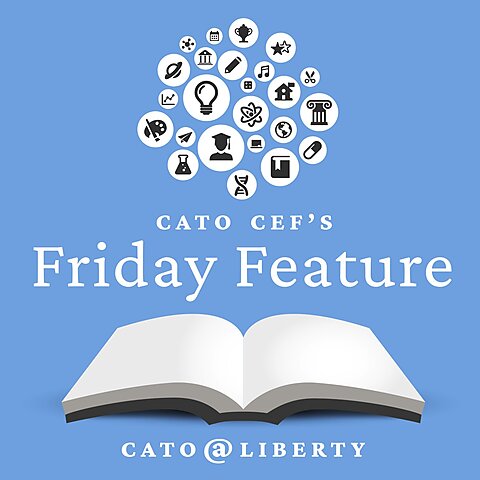Colleen Hroncich
Empowerment Scholarship Accounts are helping to transform the education landscape in Arizona. Homeschool mom Marta MacBan, founder of Sonoran Learning Collective north of Phoenix, has seen this firsthand. “It’s been really great in Arizona because it really does give families just so many options to meet their students’ needs,” she says, adding that it’s helped fuel the growth of microschools.
Like many parents, Marta’s first foray into teaching happened when schools were shut down during COVID-19. Her daughter was in kindergarten, and Zoom school wasn’t working. A homeschooling friend suggested they try using her curriculum for the rest of the year. “I ended up using it for the remainder of the year, and I was like, ‘Oh, wow, this is actually really great. I can do this,’” she recalls. “It was just a little bit eye-opening to see that I was able to teach my daughter at home.”
She and that friend created a pandemic pod with five families who met at the friend’s house. The friend was in the process of opening a cottage school modeled after Highlands Latin School in Kentucky and invited Marta to join her. “That next year, which was the 2021–22 school year, we launched Highlands Latin Cottage School, which was a one-day-a-week school. We started with 12 kids who came and learned together in the classroom, and then the rest was at home,” says Marta. “It grew pretty quickly. We went from 12 kids the first year to, I think, we had 46 the second year.”
During that time, Marta thinks there was a shift in how parents were thinking about education. “Parents were seeing some things in the public system that were exposed and just also appreciating the time with their kids and realizing that they want to play a part in their child’s education,” she says. Marta experienced her own shifts as well, going from narrowly thinking education had to happen in a specific building by a certified teacher to realizing there are many places and ways to learn.
After four years of homeschooling, including three with Highlands Latin, she realized she wanted to do something a little different with her children. While she loved the Highlands Latin model, it was focused on one curriculum, and Marta wanted to explore some other areas for her daughter. So she joined the KaiPod Catalyst program and launched Sonoran last fall with 10 students and one other teacher.
The emphasis at Sonoran is individualized learning, which is a shift from what she expected going into it. She has two classrooms—upper elementary (4th and 5th grade) and lower elementary (2nd and 3rd grade)—because she happened to have pretty even numbers for those age ranges. She focuses on core academic subjects because there are a lot of options for enrichment and extracurricular activities in the area. “But there weren’t many that offer actual core subjects, and that was an area that a lot of parents, especially as the kids get older, really need help in,” Marta explains. “So we do math, English language arts—you know, grammar, spelling, literature—and then science and social studies.”
They have recess, breaks, and some classes all together; for example, last semester they did the science unit together. For other classes, they stay separate to allow each to work at a different level. For math in particular, each student can work at his or her own pace. “There are five students in the room using the same curriculum, but they’re all at different levels, and they can go at their pace. So one student might be in the 3rd grade math book on Lesson 75 and one might be in the 3rd grade math on Lesson 56. And that’s fine,” she says. “It’s more focused on ‘what do we want them to achieve and how do they learn’ instead of ‘we need to get through this book and it doesn’t matter if they know it or not.’”
As a hybrid program, Sonoran classes are held in person Mondays through Wednesdays, and students learn at home the other days. Each week, Marta updates the students’ progress on an app so parents can see what they’ve done and what they should work on for the following week. She says parents really like the support and accountability they get from those updates so they know what the students should be doing for the home days.
In addition to running Sonoran, Marta loves helping others understand the changing education landscape because she knows it can be overwhelming. “I’m really passionate about helping families navigate that and say ‘OK, what are you looking for? What are your needs?’ Just kind of helping them just ease that anxiety with the overload,” she says.
Marta says it’s been exciting to see the change in school choice and the attitudes people have about it. She notes it wasn’t long ago that if you said you were homeschooled, people thought you were weird, or if you went to an alternative school, that meant you were a failure.
“But now it’s totally fine. It’s not uncommon for when you ask a child, ‘Where do you go to school?’ You can have any kind of different answer and it’s totally fine. It’s now the norm that there are all these different options and opportunities,” she says. “Our society is just different now than it was, and I think that’s been cool.”

